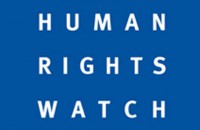Bangladesh: Violence Wracks Pre-Election Period Government, Opposition Leaders Should Act to End Abuses
DHAKA, Dec. 5 (nsnewswire) — Violence by opposition protesters and excessive force by state security forces need to end in Bangladesh, with national elections scheduled for January 5, 2014, Human Rights Watch said today.
The opposition party alliance led by the Bangladesh National Party (BNP) has held large-scale and often violent protests throughout the country for weeks, and security forces have at times responded with excessive force.
On December 4, 2013, a member of the opposition Jubo Dal party was killed in a clash with security forces, with initial reports suggesting that at least 50 other people were seriously injured in the incident. Credible reports suggest that at least 40 people, including bystanders, have been killed during protests.
The Bangladeshi human rights organization Odhikar estimates that more than 4,000 people were injured during protests in November alone, and that the security forces were responsible for at least 5 deaths.
“With election sentiments at the bursting point, Bangladeshi security forces need to overcome their long history of using unlawful force against opposition protesters and respond in a way that is professional and non-partisan.” said Brad Adams, Asia director at Human Rights Watch. “The ruling Awami League should remember the mistreatment suffered by its supporters when they were in the opposition and ensure that law enforcement agencies act within the law.”
Political party and protest leaders should act to prevent violence by their supporters, including against the security forces. The security forces should respond to protests in accordance with international law enforcement standards, only using force when strictly necessary. The BNP has said it will boycott the elections unless a neutral caretaker government is appointed to oversee the voting process. Prime Minister Sheikh Hasina and her Awami League have rejected calls for a caretaker government, promising instead an all-party government with itself at the helm during the pre-election period.
Protesters have been responsible for the majority of deaths and injuries during the demonstrations. There are credible reports that bombs hurled by protesters injured at least four children. A number of security force personnel have been injured, and several police and a member of the Border Guards Bangladesh have been killed, according to independent reporters.
On November 28, for instance, unidentified protesters hurled a gasoline bomb into a crowded public bus in the Shahbagh neighborhood of Dhaka, trapping passengers inside. Witnesses described seeing passengers, some in flames, jumping desperately out of the bus windows. At least three people died, including a teenager, and an estimated 20 others suffered serious burns. The Awami League and the BNP each quickly blamed the other for the attack.
On December 4, opposition protesters derailed three passenger train carriages in Gaibandha district, killing at least three passengers and trapping dozens of others. Journalists reported that about 40 people were injured, about 5 seriously. The government blamed the Jamaat-e-Islaami party, which is allied with the BNP, for the attack, and arrested two of its members. Opposition parties have yet to comment about, let alone condemn, the attack on the train.
“Opposition leaders not only shouldn’t be inciting violence, but they have a responsibility to do all they can to keep their protests peaceful,” Adams said. “When their members commit crimes, political leaders need to cooperate with the authorities to ensure those responsible are promptly apprehended.”
Spokespeople for the police and the Border Guards Bangladesh have confirmed firing shots at protesters in many incidents across the country, but have not made public the numbers of those who have died or been injured. Independent journalists report seeing security forces use teargas and live rounds to disperse protests.
The Bangladeshi authorities are obligated to investigate violence by protesters and the unlawful use of force by security forces thoroughly and impartially, and to prosecute those responsible for carrying out or ordering such acts. In the past, the government has taken no action even in cases of well-documented unlawful killings by the security forces during protests.
The government should publicly order the security forces to follow the UN Basic Principles on the Use of Force and Firearms by Law Enforcement Officials, which state that security forces shall “apply non-violent means before resorting to the use of force and firearms,” and that “whenever the lawful use of force and firearms is unavoidable, law enforcement officials shall: (a) Exercise restraint in such use and act in proportion to the seriousness of the offence and the legitimate objective to be achieved; (b) Minimize damage and injury, and respect and preserve human life.”
The United Nation’s human rights chief, Navi Pillay, on December 1 issued a stern warning to all the parties against political violence and its legal consequences. Various governments have called on Bangladesh’s political leaders to ensure an end to violence.
“The leaders of the Awami League and Bangladesh Nationalist Party need to take urgent steps to avoid further deaths and abuses,” Adams said. “Pre-election violence has already cost too many lives in Bangladesh. Only responsible leadership can bring an end to this senseless loss of life.”
